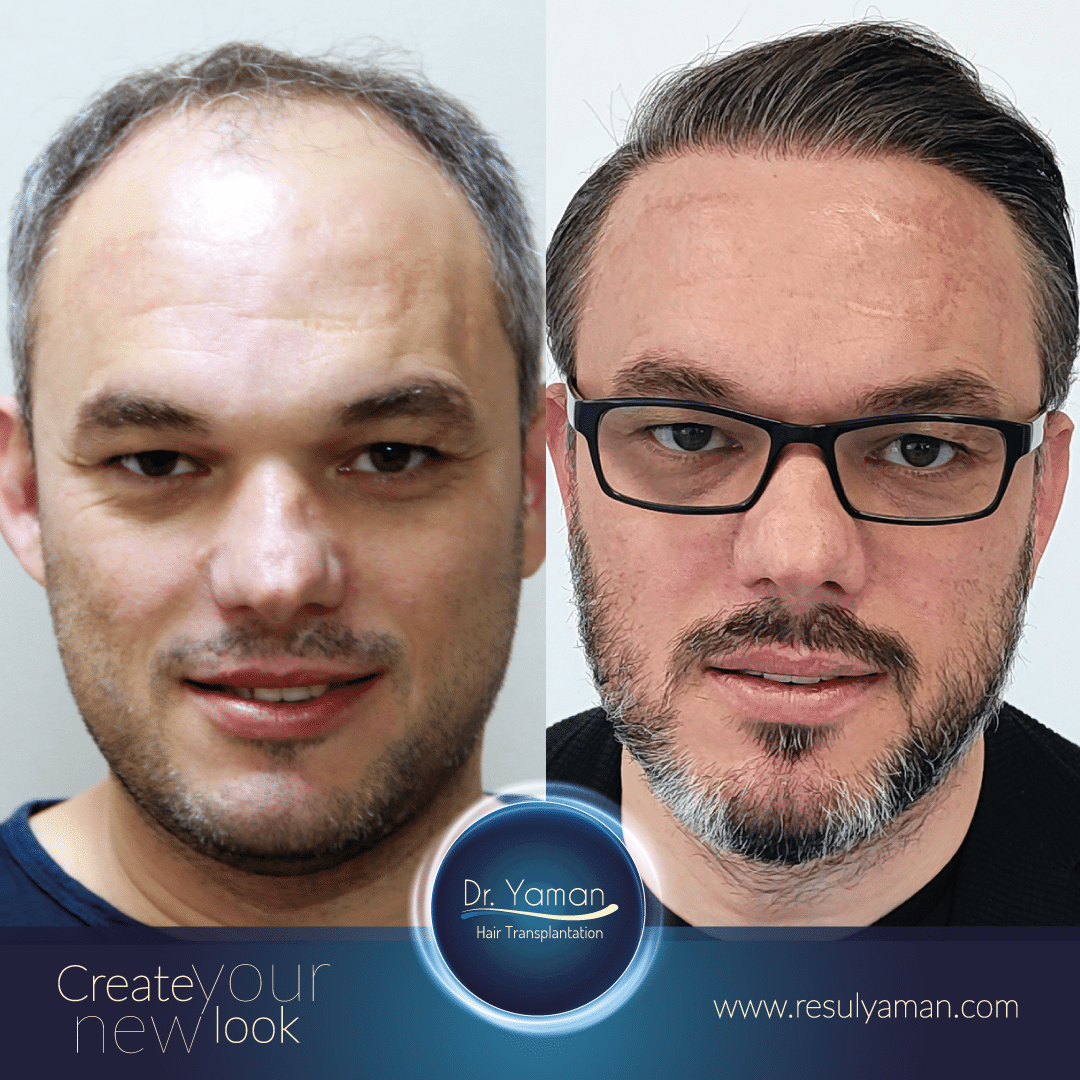Irritating, persistent dandruff flakes are a pretty common scalp condition – but do they indicate a potential deeper concern for your hair health? The answer to this question is slightly complex; while dandruff itself isn’t necessarily a sign of hair loss, it is a sign that your scalp is dry, making your hair potentially more prone to breakage. So, what can you do about it? Let’s take a look.
What is Dandruff?
As you’ve probably experienced it at least once in your life, you’ll likely already know how to spot dandruff; dandruff typically manifests as white or gray flakes on the scalp, often accompanied by itching. Its causes vary, with factors like dry skin, sensitivity to hair products, and the yeast-like fungus Malassezia all being common culprits.
Dandruff flakes can also be confused with hair lice due to their white appearance and the itch factor, but it’s pretty easy to tell the difference between the two. If you notice small white flakes in irregular shapes that fall or move when you touch them, it’s most likely dandruff. If the flakes are more yellow-toned and egg-shaped, you might be dealing with head lice.
Can Dandruff Lead to Hair Loss?
The direct link between dandruff and hair loss is complex; while dandruff itself doesn’t cause hair loss outright, the itchiness it provokes can lead to scratching, and this can harm hair follicles, potentially resulting in hair loss. In severe cases, dandruff can also escalate to seborrheic dermatitis, which may contribute to hair thinning. Furthermore, dandruff may signal an underlying scalp condition that affects hair health. For instance, hair loss from fungal causes can occur alongside dandruff symptoms, indicating a fungal infection on the scalp that leads to hair thinning and loss.
Remedies and Prevention Methods
So, if you’re experiencing dandruff, treating it right away is the best proactive step to prevent any hair loss, and this usually begins with the use of anti-dandruff shampoos: look for formulas that contain active ingredients like zinc pyrithione, ketoconazole, selenium sulfide, or coal tar, as these active ingredients can help mitigate dandruff by targeting the fungus responsible for its development, or by decelerating skin cell production.
Scalp treatments that incorporate natural elements such as tea tree oil and aloe vera can also offer relief through their anti-inflammatory and soothing properties, but do note that these remedies require consistent applications in order to ensure effectiveness.
Hair Care Tips for Avoiding Dandruff

Aside from treating the dandruff itself, you might also want to reconsider your lifestyle choices as well as your haircare routine. At Dr. Yaman’s hair clinic in Turkey, we offer our clients the following advice:
- Beyond topical treatments, lifestyle adjustments and hair care practices play a significant role in preventing dandruff.
- Ensuring a diet rich in zinc, B vitamins, and essential fats can fortify against dandruff.
- Stress management is another crucial aspect, given its potential to trigger or worsen dandruff.
- It’s best to limit the use of hair styling products that can accumulate on the scalp and hair, leading to dandruff; if you do need styling products, opt for natural and lightweight formulas to minimize scalp irritation.
- Regularly washing your hair with a gentle shampoo helps in avoiding the buildup of oils and skin cells, which can culminate in dandruff.
Expert Insights and Recommendations
So, if you’ve tried everything and you’re still being pestered by those pesky white flakes, what can you do about it? Here’s what we’d recommend:
Consult a Specialist for Persistent Dandruff
If you’re experiencing persistent dandruff that doesn’t improve with over-the-counter treatments, it’s a good idea to get advice from a trained dermatologist or a trichologist; these specialists can be able to provide you with a comprehensive evaluation of your scalp condition, identifying any underlying issues that may be contributing to dandruff and, by extension, hair loss. They’ll also be able to potentially prescribe more potent treatments that target the specific cause of your dandruff, which may yield better results.
Addressing Underlying Scalp Conditions
It’s important to recognize that dandruff might be a symptom of an underlying scalp condition, such as seborrheic dermatitis or a fungal infection. In these cases, treating the dandruff alone may not suffice, as you’re not treating the root problem; again, it’s a good idea to speak with a healthcare provider who will be able to accurately diagnose any ongoing condition, and offer a recommended treatment plan that addresses both the symptoms and the root cause.
Importance of Scalp Health for Hair Vitality
Finally, maintaining a healthy scalp is crucial for preventing hair loss and ensuring the vitality of your hair. Regular scalp care, including proper hygiene, balanced nutrition, and stress management, forms the foundation of hair health, so it’s important to evaluate your hair routine when dealing with a persistent dandruff problem. In some cases, your problem could be solved simply by cutting a product out of your routine; while some hair products might be lightweight, they could contain an ingredient that you’re either allergic to or sensitive to, which could be causing both the itchiness and dryness, and consequently, the dandruff.
Ultimately, the best way to avoid dandruff-induced hair loss is to speak with a professional; with an expert diagnosis you’ll be able to follow a tailored treatment plan and prevent any future hair loss going forward.
 WhatsApp
WhatsApp Get Mail!
Get Mail!
 English
English Italiano
Italiano Español
Español Türkçe
Türkçe Português
Português Français
Français Deutsch
Deutsch عربي
عربي



